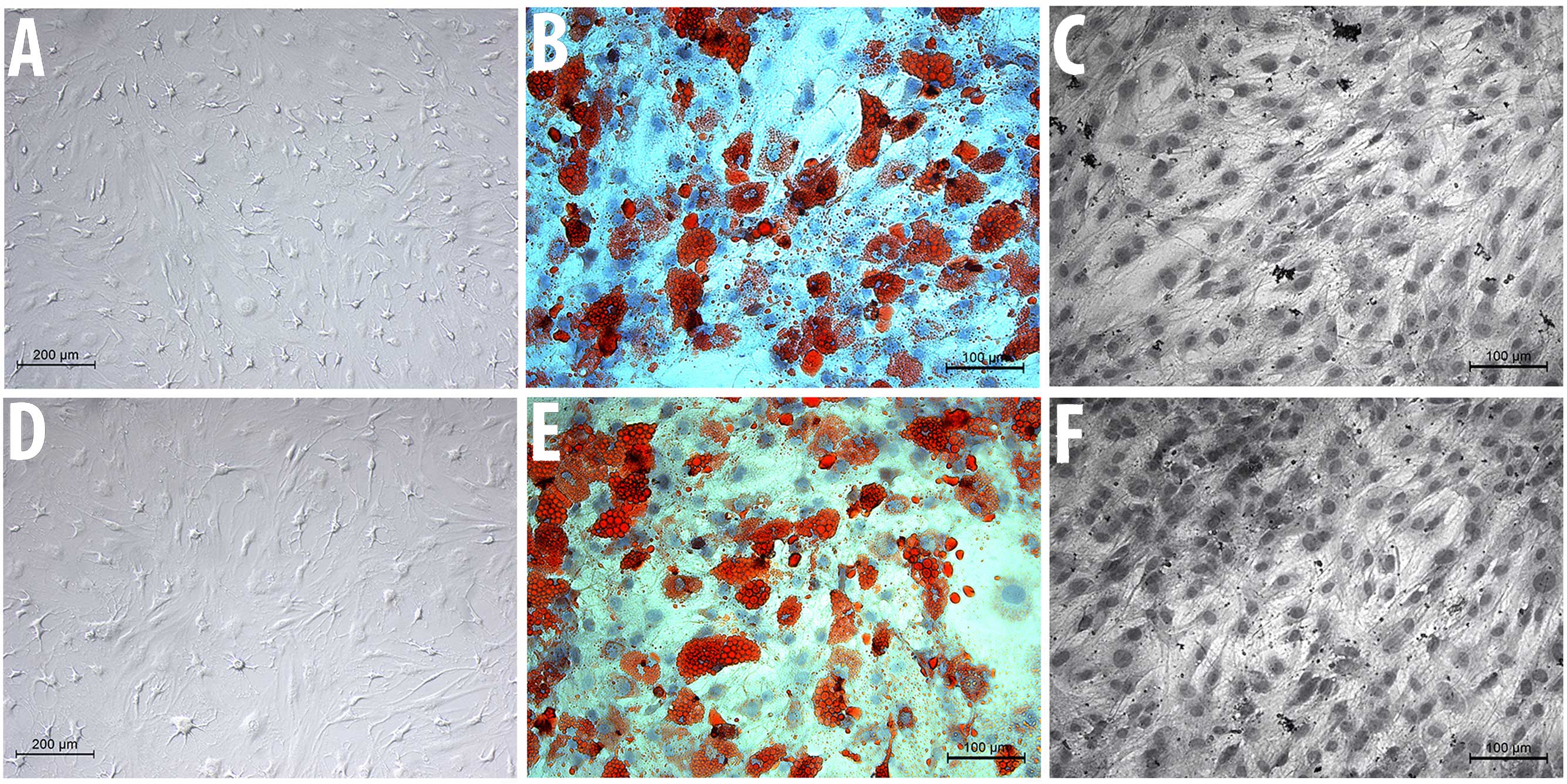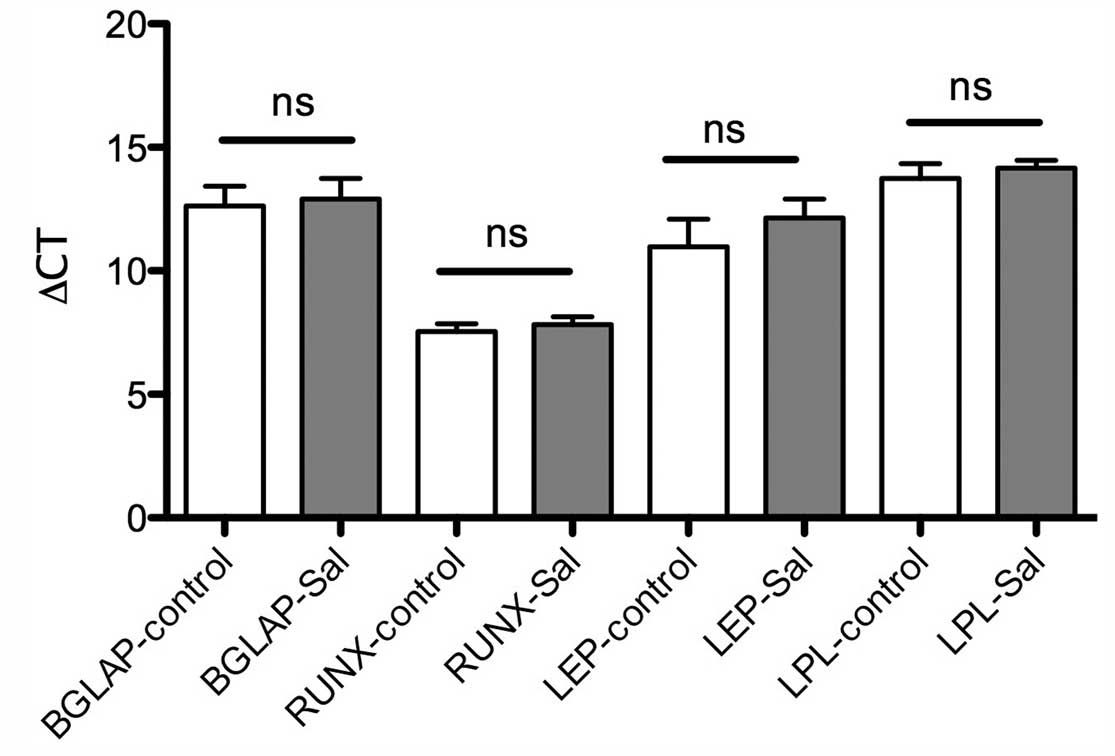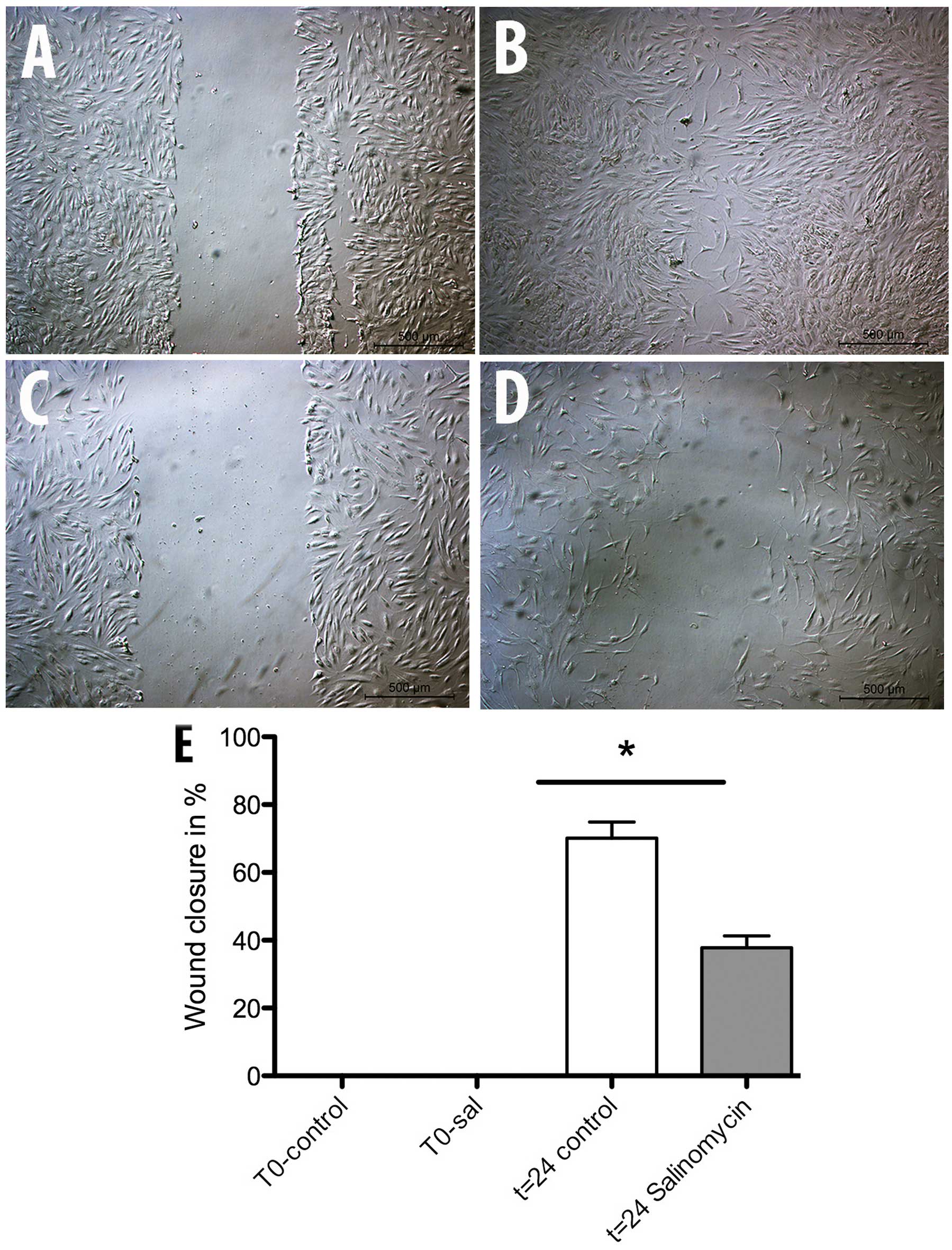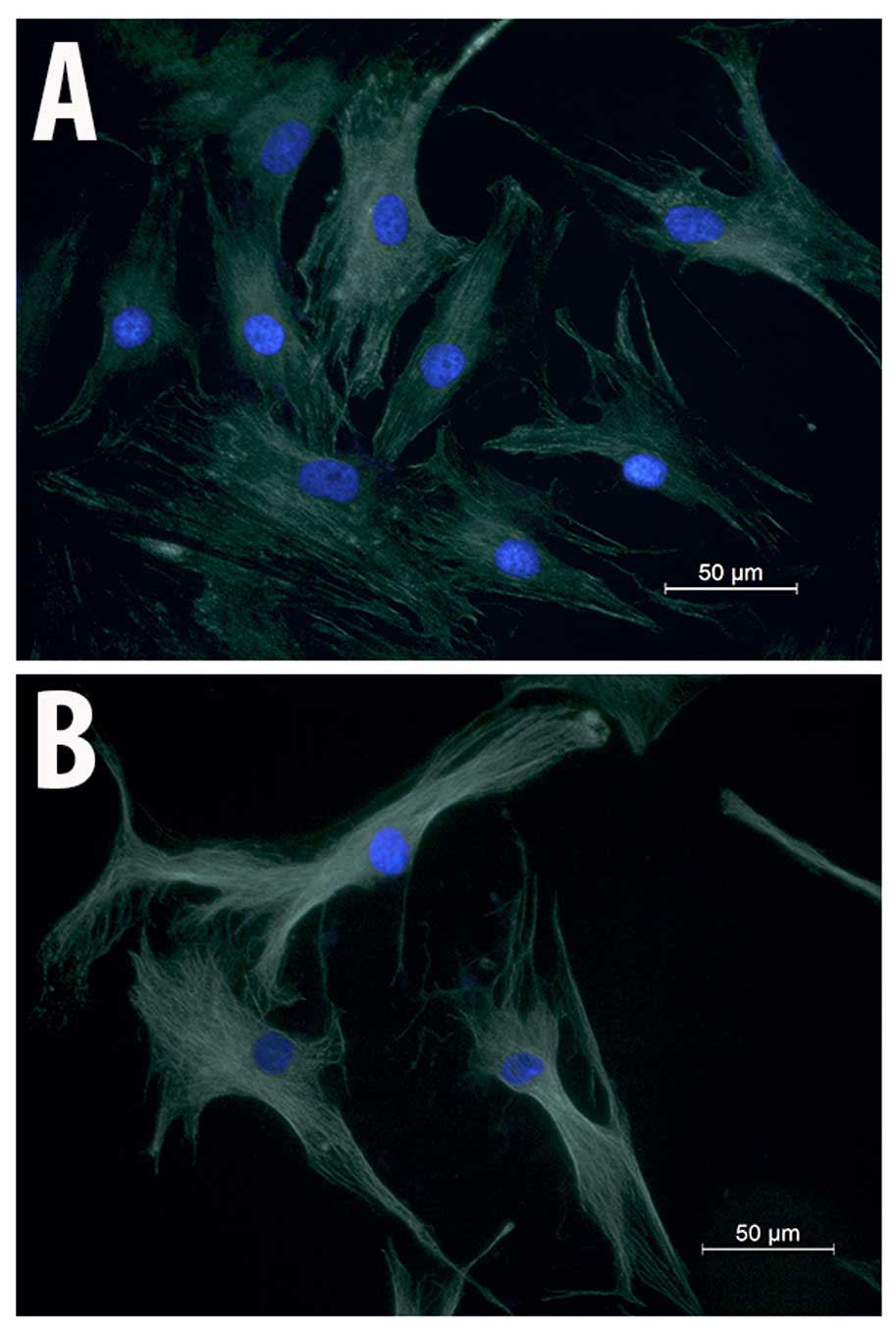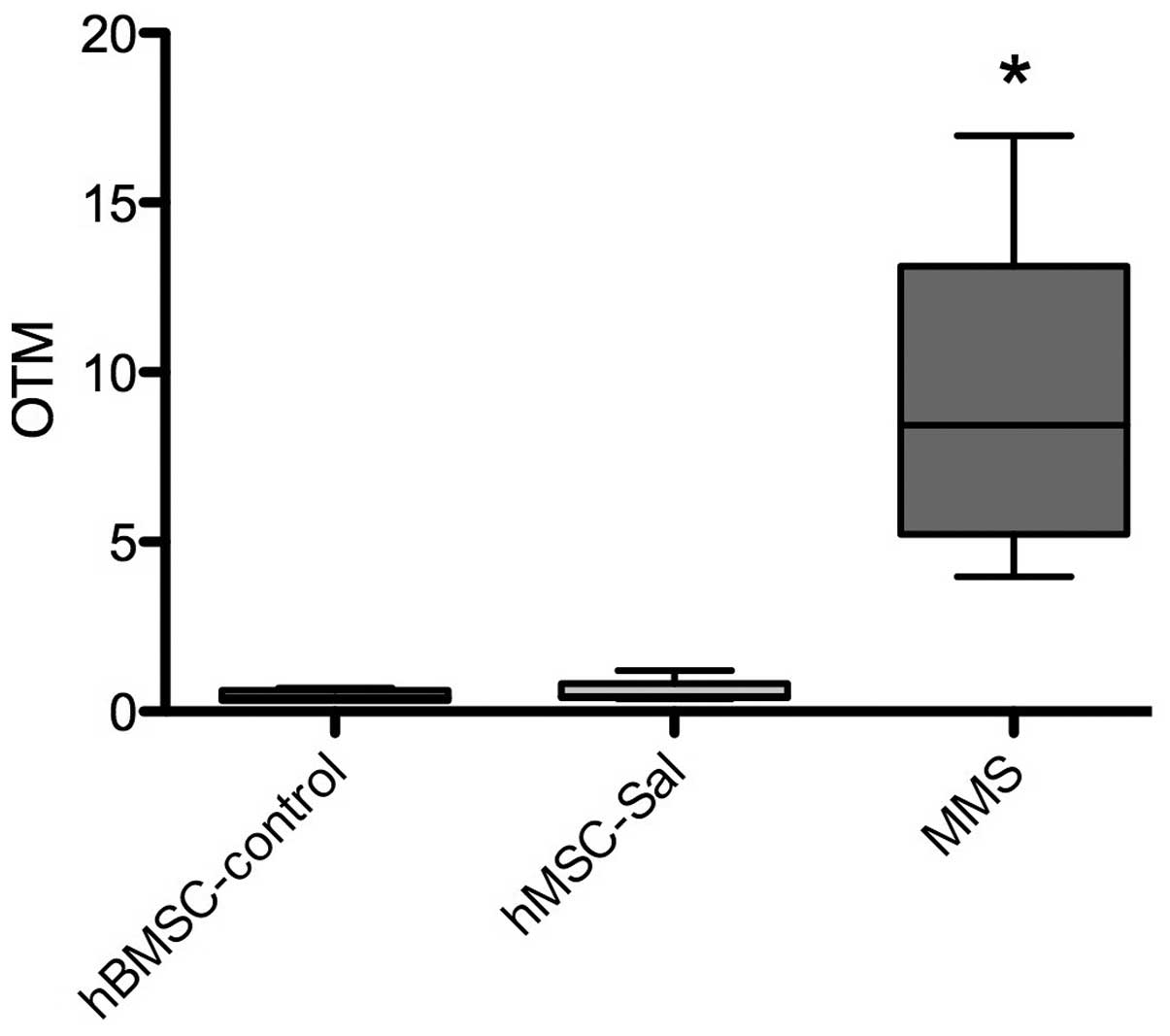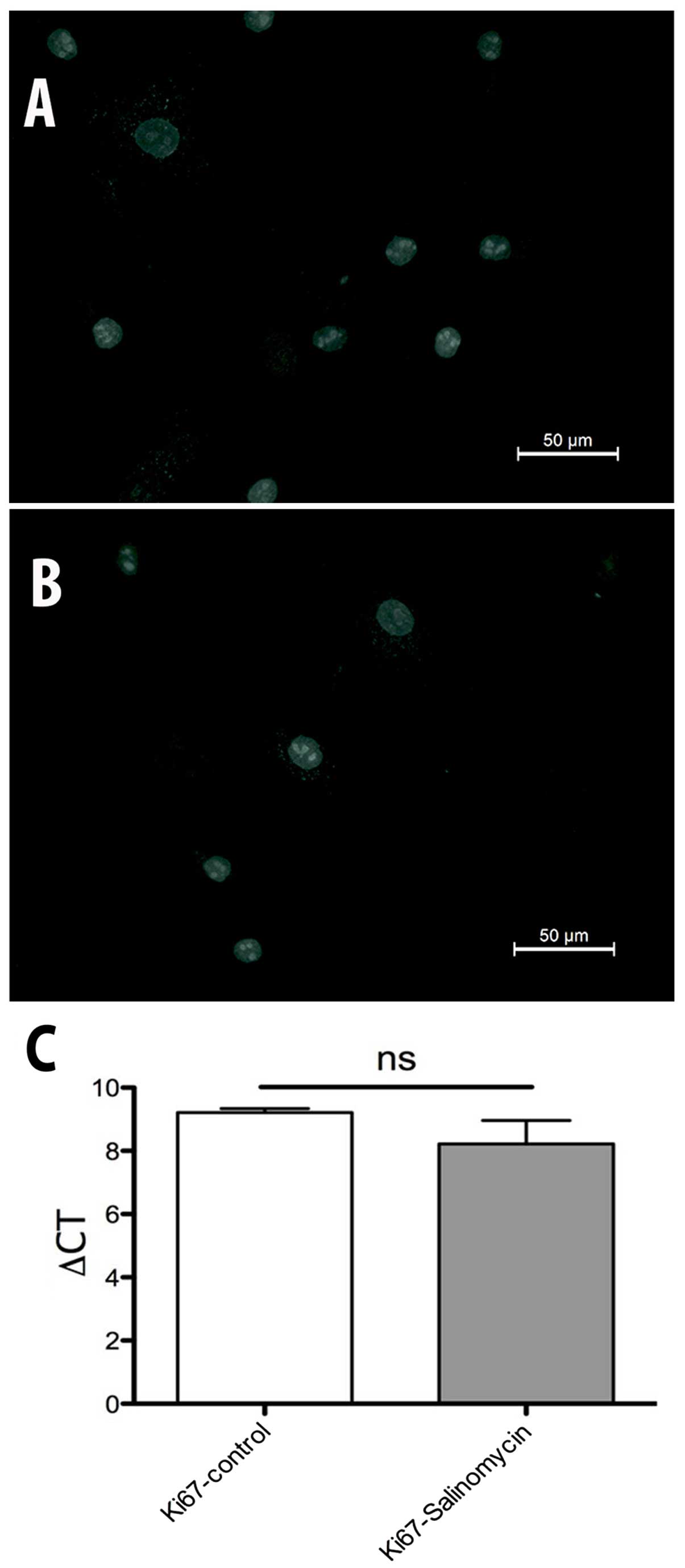|
1
|
Boehmerle W and Endres M: Salinomycin
induces calpain and cytochrome c-mediated neuronal cell death. Cell
Death Dis. 2:e1682011. View Article : Google Scholar : PubMed/NCBI
|
|
2
|
Story P and Doube A: A case of human
poisoning by salinomycin, an agricultural antibiotic. N Z Med J.
117:U7992004.PubMed/NCBI
|
|
3
|
Caldeira C, Neves WS, Cury PM, Serrano P,
Baptista MA and Burdmann EA: Rhabdomyolysis, acute renal failure
and death after monensin ingestion. Am J Kidney Dis. 38:1108–1112.
2001. View Article : Google Scholar : PubMed/NCBI
|
|
4
|
Kouyoumdjian JA, Morita MP, Sato AK and
Pissolatti AF: Fatal rhabdomyolysis after acute sodium monensin
(Rumensin) toxicity: Case report. Arq Neuropsiquiatr. 59:596–598.
2001. View Article : Google Scholar : PubMed/NCBI
|
|
5
|
Mortier L, Huet AC, Charlier C, Daeseleire
E, Delahaut P and Van Peteghem C: Incidence of residues of nine
anticoccidials in eggs. Food Addit Contam. 22:1120–1125. 2005.
View Article : Google Scholar : PubMed/NCBI
|
|
6
|
Szkudlarek-Mikho M, Saunders RA, Yap SF,
Ngeow YF and Chin KV: Salinomycin, a polyether ionophoric
antibiotic, inhibits adipogenesis. Biochem Biophys Res Commun.
428:487–493. 2012. View Article : Google Scholar : PubMed/NCBI
|
|
7
|
Dominici M, Le Blanc K, Mueller I,
Slaper-Cortenbach I, Marini F, Krause D, Deans R, Keating A,
Prockop Dj and Horwitz E: Minimal criteria for defining multipotent
mesenchymal stromal cells. The international society for cellular
therapy position statement. Cytotherapy. 8:315–317. 2006.
View Article : Google Scholar : PubMed/NCBI
|
|
8
|
Horwitz EM, Le Blanc K, Dominici M,
Mueller I, Slaper-Cortenbach I, Marini FC, Deans RJ, Krause DS and
Keating A: International Society for Cellular Therapy:
Clarification of the nomenclature for MSC: The international
society for cellular therapy position statement. Cytotherapy.
7:393–395. 2005. View Article : Google Scholar : PubMed/NCBI
|
|
9
|
Lee RH, Kim B, Choi I, Kim H, Choi HS, Suh
K, Bae YC and Jung JS: Characterization and expression analysis of
mesenchymal stem cells from human bone marrow and adipose tissue.
Cell Physiol Biochem. 14:311–324. 2004. View Article : Google Scholar : PubMed/NCBI
|
|
10
|
Scherzed A, Hackenberg S, Froelich K,
Kessler M, Koehler C, Hagen R, Radeloff A, Friehs G and Kleinsasser
N: BMSC enhance the survival of paclitaxel treated squamous cell
carcinoma cells in vitro. Cancer Biol Ther. 11:349–357. 2011.
View Article : Google Scholar : PubMed/NCBI
|
|
11
|
Buehrlen M, Harreus UA, Gamarra F, Hagen R
and Kleinsasser NH: Cumulative genotoxic and apoptotic effects of
xenobiotics in a mini organ culture model of human nasal mucosa as
detected by the alkaline single cell microgel electrophoresis assay
and the annexin V-affinity assay. Toxicol Lett. 169:152–161. 2007.
View Article : Google Scholar : PubMed/NCBI
|
|
12
|
Olive PL, Durand RE, Le Riche J, Olivotto
IA and Jackson SM: Gel electrophoresis of individual cells to
quantify hypoxic fraction in human breast cancer. Cancer Res.
53:733–736. 1993.PubMed/NCBI
|
|
13
|
Dorne JL, Fernández-Cruz ML, Bertelsen U,
Renshaw DW, Peltonen K, Anadon A, Feil A, Sanders P, Wester P and
Fink-Gremmels J: Risk assessment of coccidostatics during feed
cross-contamination: Animal and human health aspects. Toxicol Appl
Pharmacol. 270:196–208. 2013. View Article : Google Scholar : PubMed/NCBI
|
|
14
|
Antoszczak M, Popiel K, Stefańska J,
Wietrzyk J, Maj E, Janczak J, Michalska G, Brzezinski B and
Huczyński A: Synthesis, cytotoxicity and antibacterial activity of
new esters of polyether antibiotic-salinomycin. Eur J Med Chem.
76:435–444. 2014. View Article : Google Scholar : PubMed/NCBI
|
|
15
|
Huczyński A: Polyether
ionophores-promising bioactive molecules for cancer therapy. Bioorg
Med Chem Lett. 22:7002–7010. 2012. View Article : Google Scholar : PubMed/NCBI
|
|
16
|
Todd GC, Novilla MN and Howard LC:
Comparative toxicology of monensin sodium in laboratory animals. J
Anim Sci. 58:1512–1517. 1984.PubMed/NCBI
|
|
17
|
Naujokat C and Steinhart R: Salinomycin as
a drug for targeting human cancer stem cells. J Biomed Biotechnol.
2012:9506582012. View Article : Google Scholar : PubMed/NCBI
|
|
18
|
Scherzad A, Hackenberg S, Schramm C,
Froelich K, Ginzkey C, Hagen R and Kleinsasser N: Geno- and
cytotoxicity of salinomycin in human nasal mucosa and peripheral
blood lymphocytes. Toxicol In Vitro. 29:813–818. 2015. View Article : Google Scholar : PubMed/NCBI
|
|
19
|
Scherzed A, Hackenberg S, Froelich K, Rak
K, Technau A, Radeloff A, Nöth U, Koehler C, Hagen R and
Kleinsasser N: Effects of salinomycin on human bone marrow-derived
mesenchymal stem cells in vitro. Toxicol Lett. 218:207–214. 2013.
View Article : Google Scholar : PubMed/NCBI
|
|
20
|
Wynn RF, Hart CA, Corradi-Perini C,
O'Neill L, Evans CA, Wraith JE, Fairbairn LJ and Bellantuono I: A
small proportion of mesenchymal stem cells strongly expresses
functionally active CXCR4 receptor capable of promoting migration
to bone marrow. Blood. 104:2643–2645. 2004. View Article : Google Scholar : PubMed/NCBI
|
|
21
|
Liu N, Tian J, Cheng J and Zhang J:
Migration of CXCR4 gene-modified bone marrow-derived mesenchymal
stem cells to the acute injured kidney. J Cell Biochem.
114:2677–2689. 2013. View Article : Google Scholar : PubMed/NCBI
|
|
22
|
Larzabal L, El-Nikhely N, Redrado M,
Seeger W, Savai R and Calvo A: Differential effects of drugs
targeting cancer stem cell (CSC) and non-CSC populations on lung
primary tumors and metastasis. PloS One. 8:e797982013. View Article : Google Scholar : PubMed/NCBI
|
|
23
|
Marquez-Curtis LA and Janowska-Wieczorek
A: Enhancing the migration ability of mesenchymal stromal cells by
targeting the SDF-1/CXCR4 axis. BioMed Res Int. 2013:5610982013.
View Article : Google Scholar : PubMed/NCBI
|















